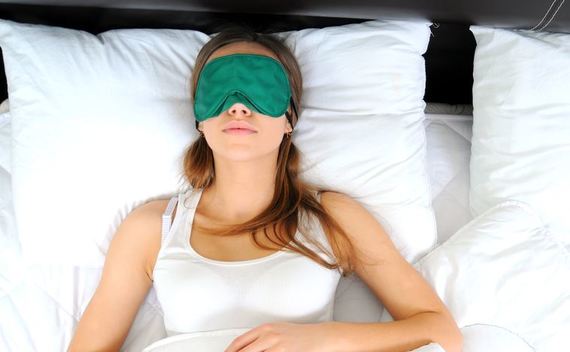Secret to a great night’s sleep
Filed under:
Guest Bloggers

Getting enough sleep is crucial to our well being: it helps reduce stress, increases productivity and attention, as well as helping us maintain a good immune system and even increase life expectancy.
Despite this many of us don’t get enough hours or quality sleep. So what can we do?
Some people go to their doctor looking for sleeping pills. But this isn’t the answer. Studies have shown that those who take sleeping tablets regularly, can sleep worse than those who don’t.
Thankfully, there are a number of things you can do to help get a better night’s sleep:
1, Reduce your intake of caffeine
Caffeine is a stimulant and should be avoided in the hours before sleep. Tea, coffee, cola, energy drinks and even chocolate contain caffeine. So if you are fond of a cuppa before bed make sure it is of the decaffeinated variety. I advise people not to drink any caffeine after 3pm
2. Avoid alcohol
A drink in the evening may seem to help but it actually disrupts the quality of your sleep. REM or rapid eye movement sleep is where we dream, and alcohol can make it less likely that we pass into this phase leaving our sleep disrupted, causing us to wake up groggy and unrested.
3. Have a regular wake-sleep cycle
Going to bed and getting up at the same time, no matter what the day, is conducive to a better night’s sleep. Those who sleep less during the week and then try to catch up at the weekend are more likely to suffer from sleep problems. If you get five hours sleep all week and then try to get ten at the weekends your body clock is constantly trying to adjust. The extra hours at the weekend may make it hard to sleep on Sunday night leaving you to start the week feeling tired and drained.

4. Have a regular sleep routine
We talk about bedtime routine for children all the time but it is equally important for adults - your body needs a winddown time. Don’t do bills or work directly before bed and don’t eat a heavy meal late at night. Consider a light snack or warm drink and. have a warm shower or bath. Listen to some relaxing music or read a few pages of a book.
5. Pay careful attention to the atmosphere of your room
Make sure the room is dark - hang blackout curtains and blinds - and avoid all blue light: computer and phone screens and even clock faces have been shown to disrupt sleep. Turn all appliances off and face the clock away from you. You should also keep the room cool - the ideal temperature is between 16° and 20°C. Think of your room as a cave so keep it cool, dark and quiet.
6. Make sure you have a comfortable bed
If you find that you sleep better in other people’s houses or in a hotel then you should examine your bed. The NBF (National Bed Federation) recommend that you change your mattress every 8-10 years - this is a big purchase, so take it seriously. Don’t be embarrassed to lie on a bed in a shop for up to 20 minutes. If you share a bed with someone they should shop for it too. Buy the best bed you can afford - it’s worth it, and pay attention to your choice of pillows. These should be appropriate to your body weight and the way you sleep. Consider layering blankets and throws so you can adjust the bed depending on your body temperature. Keeping your feet cool by sticking them out the side can also help in some people too.
Remember, atmosphere and routine is important for a good night’s sleep at all ages.
For more information on getting a better night’s sleep and selecting your bed, click here.
Dr Nina Byrnes is a well-known and respected GP and media medical expert. She has appeared on our screens as co-presenter of the RTÉ series Health of the Nation. She is the resident GP on Tubridy on RTÉ 2FM and writes a weekly health column for the Irish Independent.

















